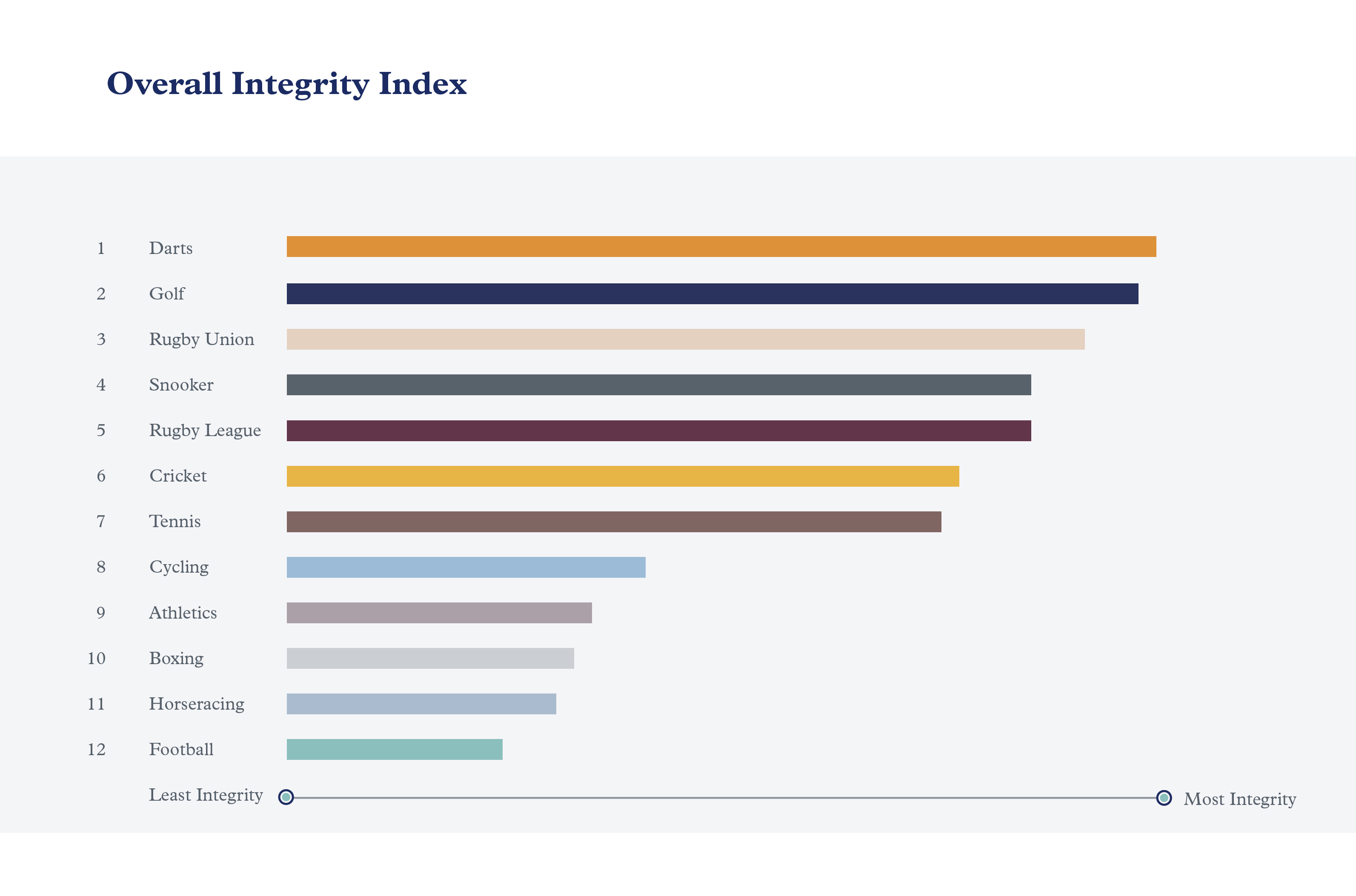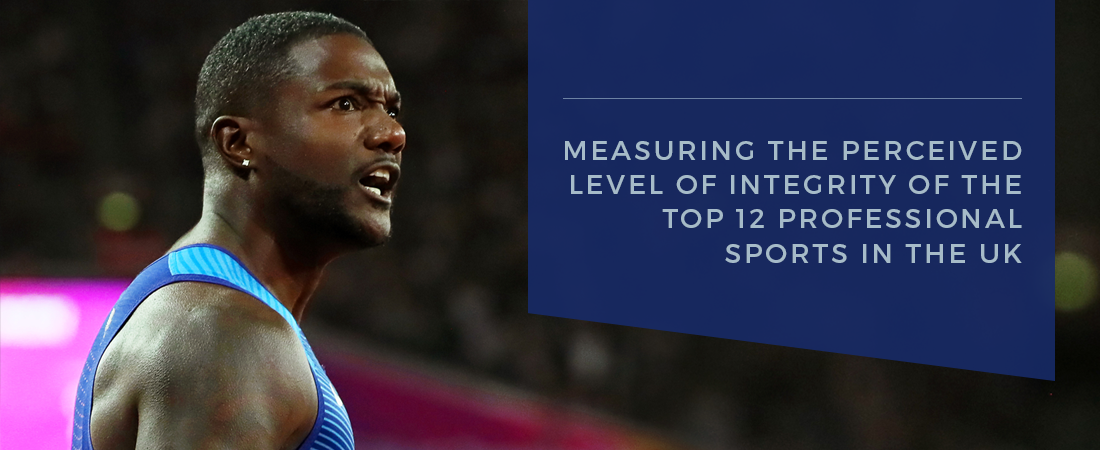Genuine competition is at the heart of all sport.
The drama and the passion, the extreme highs and the heart-breaking lows, the wonderful comebacks and the true-underdog stories. All of these require fair and honest competition. Integrity on the part of the sportsmen and women, the organisers, the referees and the governing bodies reassures us that what we are watching is real and anyone could win. Competition is what fills stadia, sells season tickets and TV subscriptions, creates heroes, generates shirt sales and captures the imagination of billions around the world.
However, recent scandals across many major sports, including doping, match-fixing, bribes, corruption and cover-ups have all contributed to the perception that on some occasions, there is not an even playing field.
For some sports, this is more of a pressing issue.
In our inaugural UK Sports Integrity Index, we have sought to understand which sports are the most and the least trusted; what issues underpin this lack of faith; and how likely integrity-related issues are to make consumers stop watching certain sports.

For football, high-profile governance issues – such as major financial corruption and the criminal investigations into FIFA – have contributed to it being the least trusted sport in the UK. In our research, 62% of football fans said they think financial corruption is an issue in the sport.
Corruption is not the only problem: 80% of athletics fans, for example, think performance enhancing drugs are a problem within the sport.
This is nothing new. Doping scandals in athletics have been prevalent for decades and football is never far from controversy.
However, there is evidence to suggest audiences are becoming more sensitive to serious reputational issues. Our research has found that a majority (52%) of people would be likely to stop watching professional sports if integrity issues are seen to persist.
Why has this happened?
The business of sport is growing. This has led to greater professionalisation, an increased demand for higher revenues and more scrutiny from politicians, media and consumers. Reputation and trust matters more than ever.
Sponsors have shown willing to withdraw support for sports with reputational issues. Rabobank stopped sponsoring their cycling team following the Lance Armstrong scandal; Sony, Emirates, Castrol, Continental and Johnson and Johnson dropped FIFA following a series of scandals; Adidas has dropped the IAAF after the Russian doping crisis; and Head has ditched Bernard Tomic after his Wimbledon antics.
And it’s not just nervous sponsors that pose a risk to reputationally challenged sports and teams. Blackpool FC supporters boycotted the League Two play-off final in protest at the running of the club and the NFL remains perpetually dogged by the growing concussion crisis.
Some may argue this is meaningless. Football may be tainted by various scandals – both in FIFA and the domestic game – but stadiums still sell-out and viewing figures remain high, the Olympics are still a global treasure and millions line the streets for the Tour De France.
However, this was the attitude of major businesses immediately post-2008: creating jobs and making money was all that mattered.
This belief has been shown to be false.
Over the last decade, a deterioration in trust has severely impacted the operating environments of major corporates across all sectors. From greater financial regulation to plain packaging; from impending legislation on the gig economy to the sugar tax.
These examples demonstrate a growing trend: if corporates cannot be trusted by the public, politicians or the media to behave in a responsible way, then ultimately a sector’s operating environment will be impaired.
Business has learnt the hard way that the trust is as much based on perception as it is on practice, but in a post-2008 global environment of increased corporate-cynicism, it is incumbent on corporates to earn the trust of consumers and legislators through good behaviours and good practice.
In sport, as in business, if major reputational issues are seen to persist, greater scrutiny, criticism and in some cases, direct intervention is possible.
Indeed, the Government has recently demonstrated its willingness to use funding as a mechanism to enforce change in governing bodies it deems require it. British Cycling has been forced to make governance reforms or lose essential funding, and earlier this year the FA finally approved reforms, having been threatened with a £15m cut.
As it becomes increasingly professionalised and the number of issues grow, it is difficult to believe that sport will continue to be able to fall back on the argument that if the fans keep showing up, there is nothing to worry about.
Integrity matters, not just for the product on show but for the people that spend money on, and invest money in, sport. It is now up to teams, clubs and governing bodies to show they can live with the front pages as well as the back pages, or people might stop turning up.






